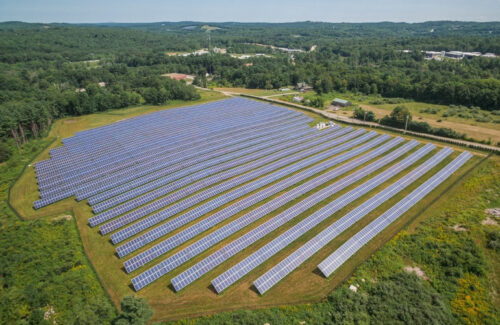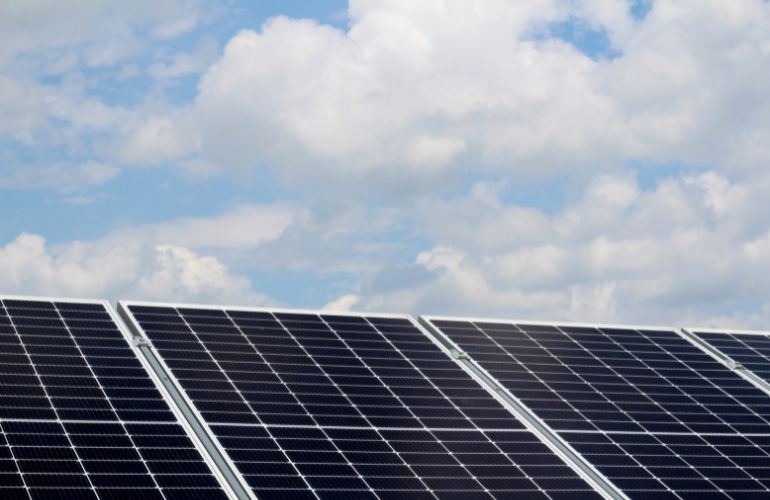Maryland legislation would incentivize low-income community solar, increase net-metering cap

A Nexamp community solar project
Together with the community solar industry, environmental and low-income advocates today cheered the finalization of legislation in Maryland that will improve the state’s clean energy economy while increasing access to solar energy for underserved communities. HB 1039 will incentivize the development of community solar projects that serve low-income communities as well as project development on contaminated lands and rooftops. HB 440 will expand the permitted net-metered projects from 2 MW to 5 MW, reduce the land requirements for siting projects, increase private investment into local economies and create more jobs. Both await Gov. Larry Hogan’s signature.
If HB 1039 is signed by the governor, community solar projects will be exempt from county or municipal corporation property tax if they meet one of three criteria:
- They provide at least 50% of energy for low-to-moderate-income customers at a cost that’s at least 20% less than the amount charged by the electric company that serves the area,
- are used for agrivoltaics,
- or are installed on a rooftop, brownfield, landfill or clean fill.
“Community solar is a way to bring many more Marylanders into the clean energy economy who had previously been left behind,” said Lynn Heller, founder and CEO of the Baltimore-based Climate Access Fund. “In order to mitigate the growing threats of climate change, we need more solar, more participation and more action from our elected officials. These bills help us achieve all three objectives.”
Maryland’s Community Solar Pilot Program will help create capacity to meet the state’s Renewable Portfolio Standards. The Clean Energy Jobs Act passed in 2019 requires half of Maryland’s energy to come from renewable sources by 2030.
“HB 1039 and HB 440 send a signal to the community solar industry that Maryland welcomes the private sector as a way to inject capital into grid modernization and build a new energy market that can bolster the state’s economy,” said Leslie Elder, Mid-Atlantic Director for the Coalition for Community Solar Access (CCSA). “We thank the Maryland General Assembly for passing these bills and Governor Hogan for his support.”
News item from the Coalition for Community Solar Access
<!–
–>
Original Source: https://www.solarpowerworldonline.com/2022/05/maryland-community-solar-legislation-low-income-brownfield/













